A trip to Italy inspired Francesca and Fannar to open their own pasta boutique
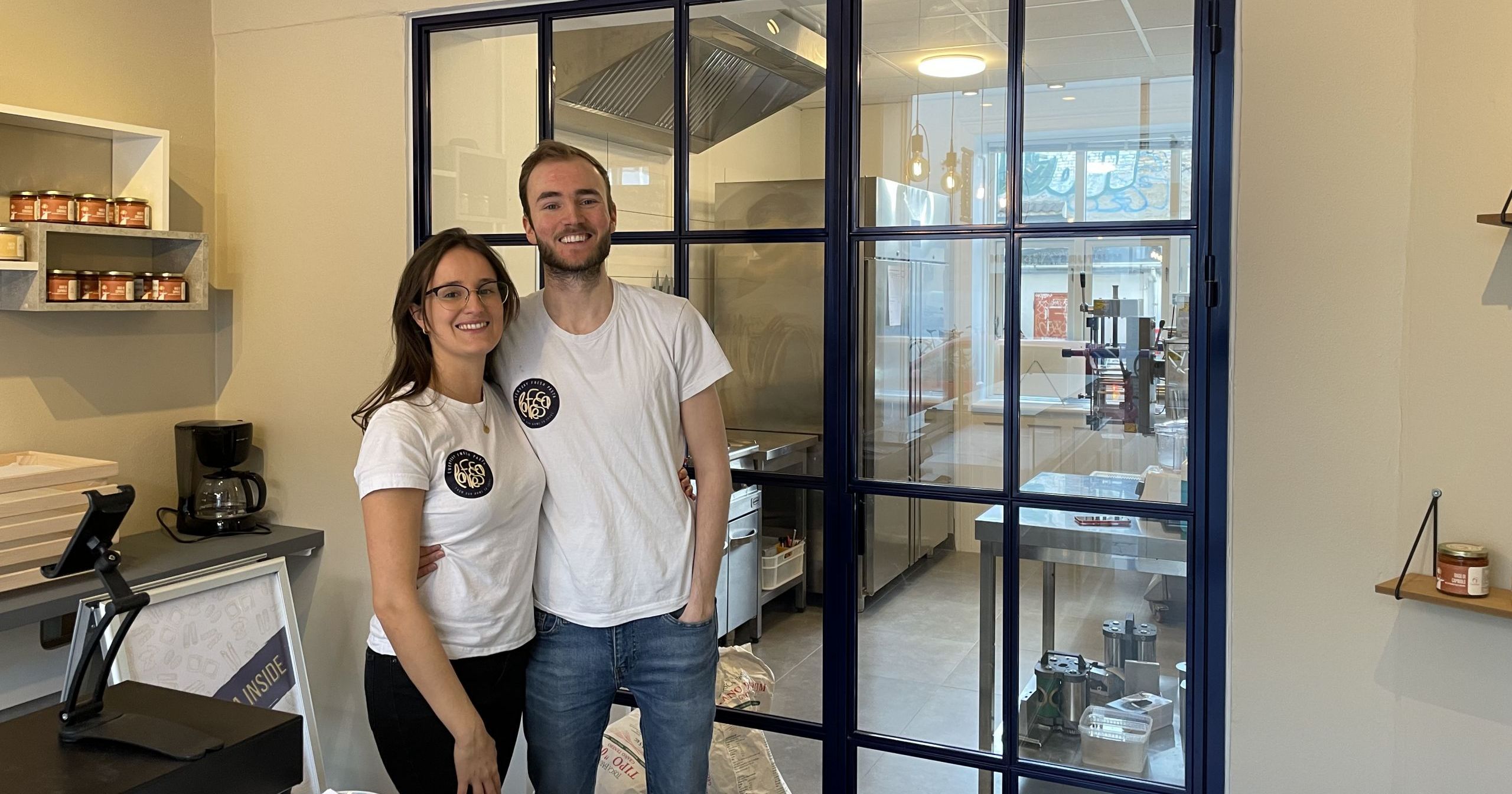
Francesca Tenze and Fannar Hannesson have opened a pasta boutique in Vanløse. Photo: Caroline Hammargren
Thanks to two CBS graduates, Copenhagen now has a pasta boutique where you can buy freshly made pasta. Francesca Tenze and Fannar Hannesson had never thought they would end up running a food business. But, a trip to food-Mecca Bologna inspired them to quit their jobs and start their own company, La Fresca, modelled on the traditional Italian concept.
It was their last year at CBS, just before the COVID-19 pandemic started, when classmates and couple Francesca Tenze and Fannar Hannesson went to Bologna.
“It’s the cradle of the most famous Italian pasta dishes, so we were going around eating nice food. It’s a very magical place,” says Francesa Tenze, who, though Italian, had never visited the city before.
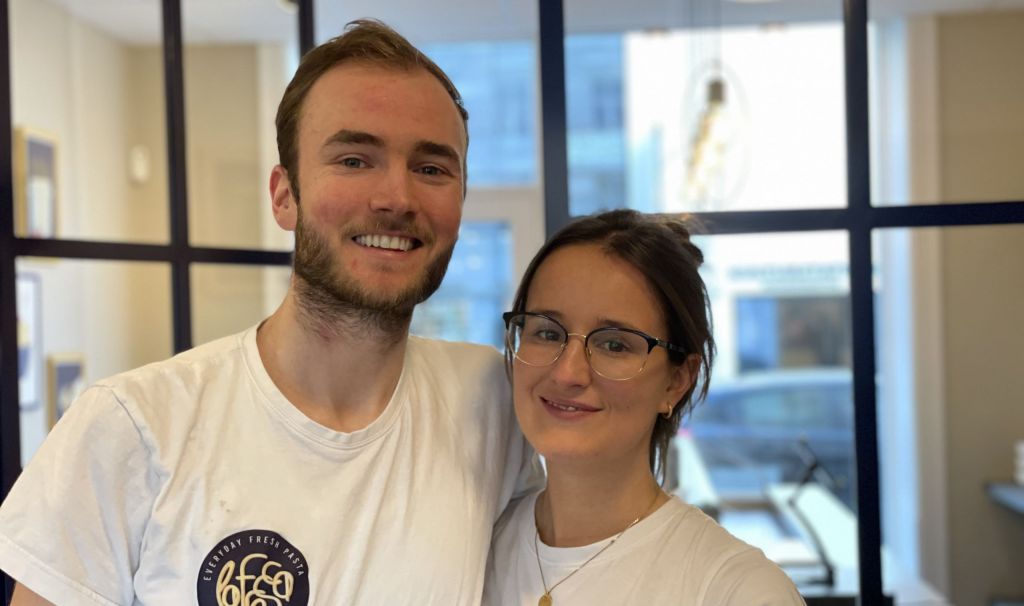
As students, Francesca Tenze and Fannar Hannesson never thought they would end up in the food business, but “an interesting idea strikes and you get excited about it,” as Fannar says. Photo: Caroline Hammargren
What particularly caught their attention were the pasta boutiques, in Italian known as pastificio.
“It’s packed with those stores all over, where they make fresh pasta in front of you. We thought it would be nice to have something like that here,” Fannar Hannesson says, now standing in the newly opened store in Vanløse.
The concept is simple: you pick up fresh pasta, a bit the same way as you get fresh bread from a bakery. Preparing it at home takes only a few minutes – and the taste is something beyond regular pasta, they assure me.
“It’s a very old concept that lost its charm some years ago, but now it’s coming back. I think after the pandemic, people are more into making things, but don’t have so much time, so they like the idea,” says Francesca Tenze.
Pink gnocchi – eye-candy for passers-by
While Bologna planted the seed, there was no defining moment when they decided to finally go for it. The decision grew gradually over two years from an idea into a real shop.
When the couple graduated in the summer of 2020, the COVID-19 pandemic had just begun. Many companies had hiring freezes and they spent some months looking for jobs. During that time, they started developing the business plan for La Fresca. Later, when they were employed, they continued working on it over the weekends. Eventually, they were too deeply engaged to turn back.
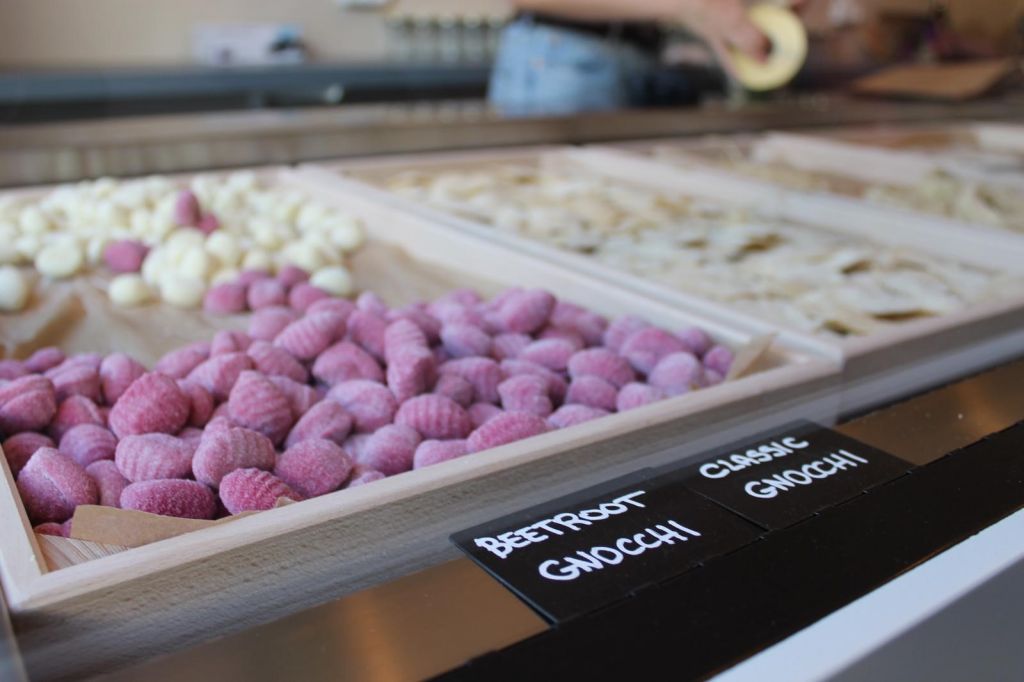
Photo: La Fresca
“At some point, we were so into preparing the business plan and talking to suppliers that it was too much work to not do it. If we didn’t do it, we would regret it,” says Francesca Tenze.
When their funding application with E R Rasmussen’s fund was granted, it was “the final push,” say the couple, who are investing a great share of their own savings in their business.
There are a lot of good chains here, but sometimes people just want the local feeling of someone who is not part of a big organisation.
Francesca Tenze, La Fresca
A year later, they were ready to quit their jobs at Coloplast and Novo Nordisk and bring La Fresca to life.
The pasta boutique opened in November on Jernbane Allé, a commercial street in the middle of Vanløse. It is a small shop dominated by a large counter and a few wall shelves displaying jars of pasta sauce. A dark blue New Yorker window gives a full view of the pasta machines in the back.
Some locals are surprised that they chose the outskirts of Copenhagen, but their criteria were clear: near a metro, passing traffic and a shop window providing good visibility of the cooling counter where the fresh pasta is displayed. According to the couple, the pinkish beetroot gnocchi, which look a bit like traditional Danish hard candy, bolcher, are especially good at luring people in from the street.
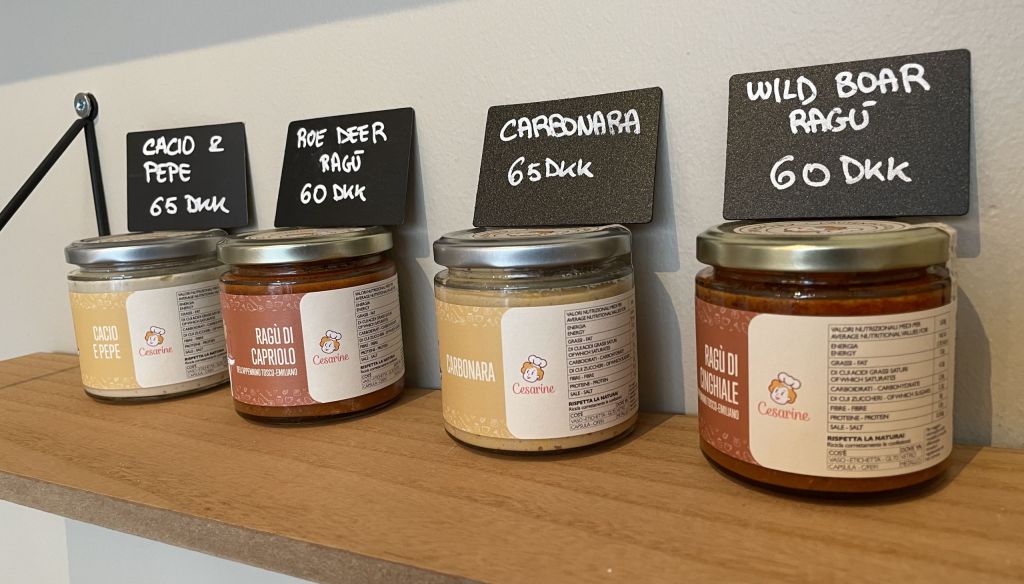
La Fresca import pasta sauce from a supplier in Italy and also make fresh sauces that they sell. Photo: Caroline Hammargren
So far, the turnout has exceeded expectations and many people seem keen to support local business.
“There are a lot of good chains here, but sometimes people just want the local feeling of someone who is not part of a big organisation,” says Francesca.
A bit into our interview, a man swings up the door, only to have to turn around with a slight frown when he finds out that the gnocchi will have to wait, as the shop is closed on Mondays.
“We’ll turn that frown upside down tomorrow,” Fannar Hannesson tells him.
Partners from the start
Running your own business is a lot of work: “it’s true that we don’t have a nine to five, but it’s 24/7,” Francesca Tenze says. Even so, she has always found cooking a sort of stress relief and luckily that did not change when it became a job.
“It’s a lot of fun. Knowing that every day I’m going to be doing what keeps the stress down is a great feeling. Of course, there is way more to running a business. There are the non-fun parts, like the accounting, but the fact that most of the time I’m preparing food that we will serve to people is amazing,” she says.
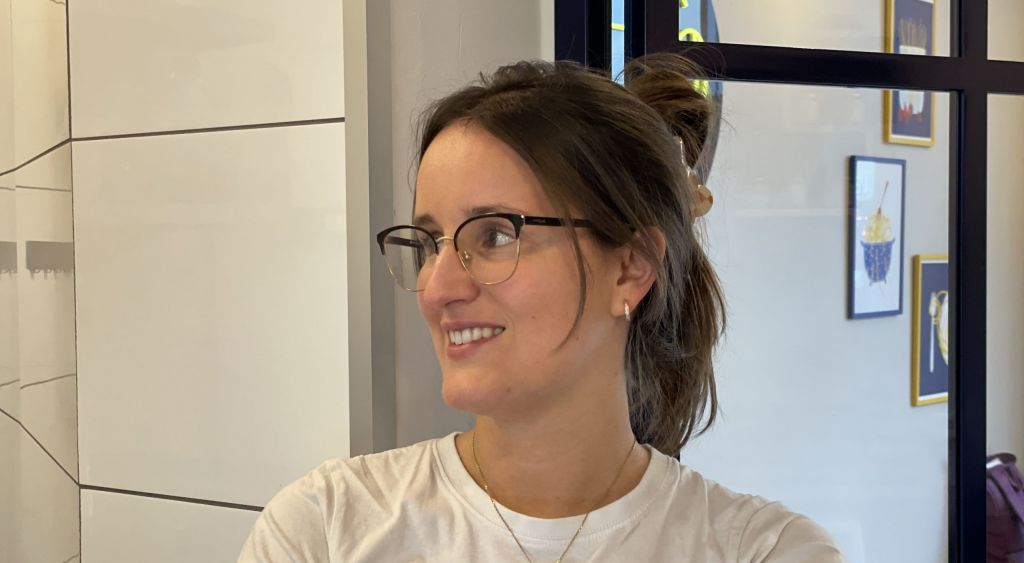
Francesca Tenze has always loved cooking, but never expected to be doing it as a job. Photo: Caroline Hammargren
At eight in the morning, they start making ravioli fillings and sauce, before the stainless-steel machines start churning out pasta of different shapes – nearly any shape you can imagine, they say. Usually, they offer gnocchi, three types of ravioli, and five to seven types of pasta every day, as well as freshly made sauces.
At midday, the shop opens and Fannar Hannesson moves to the front while Francesca Tenze stays in the back to continue production.
They sell around 10 to 15 kilos of pasta per day to in-store customers as well as businesses but hope to scale up.
There was a book that gave a very structured and detailed process for how to build a business plan and we followed that like a bible.
Fannar Hannesson, La Fresca
“The machines can produce way more than what we are producing, without necessarily increasing our effort so we’re working towards trying to increase the volumes,” says Francesca Tenze.
Neither of them had any professional cooking experience. But they returned to Bologna, first for a pasta-making course – a birthday present from Francesca to Fannar – and as plans materialised further, for a course on how to operate the pasta machines.
Francesca Tenze and Fannar Hannesson met during the intro days for their master’s programme in International Marketing and Management at CBS.
“We were supposed to associate animals to our own names,” says Fannar Hannesson.
“He stole my animal!” Francesca interjects – a fish. “It helped that his name is not really common, so I kept asking for the name and we connected.”
“Intro days are good to attend,” Fannar adds with a laugh.
The logistical nightmares of entrepreneurship
Other than finding their romantic and business partners at CBS, they have also been able to put some of the knowledge they gained here to use.
“It helped us make the right marketing choices. Now we know what works and what doesn’t. Like with Facebook ads or Google ads, everybody uses them now and since everybody uses them, it means spending a lot of money for not that much engagement.”
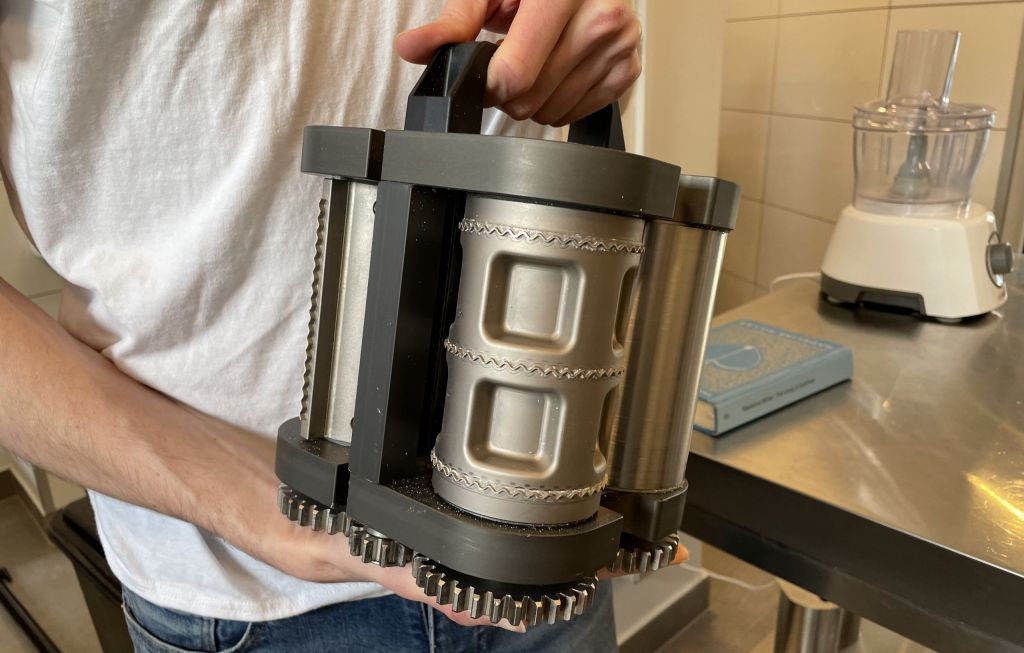
The ravioli mould is an insert to the pasta machine that can make different shapes of ravioli. Photo: Caroline Hammargren
Instead, they have opted for “organic” marketing, through word of mouth and sharing information in community groups online.
Fannar also swears by the elective course “Entrepreneurial business planning and development”.
“There was a book that gave a very structured and detailed process for how to build a business plan and we followed that like a bible,” he says.
But some things they wish university had prepared them better for, like all the administrative work and tax declarations.
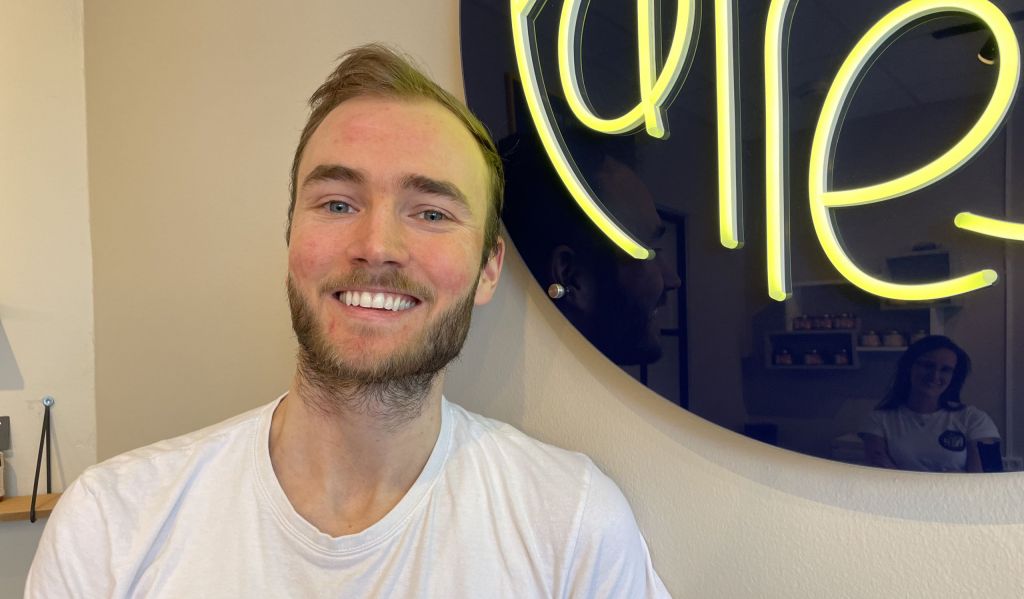
Fannar Hannesson moved to Denmark from Iceland ten years ago with his family. He studied his Bachelor and Masters degree at CBS: “You can prepare a lot and it’s crucial to have a good idea of where you want to go but once you start there are so many problems and challenges and small fires that you need to continuously be putting out,” he says. Photo: Caroline Hammargren
And some things business school just can’t prepare you for, like the logistics and real-world problems that starting a business will throw at you.
The cooling counter and pasta machines were too big to fit through the shop door, so, to get them in, they had to remove the shop window, a huge pane of glass that stretches from floor to ceiling, and across the entire front except for the door.
“We needed movers to move all the heavy machinery – it’s hundreds of kilos. And we had one day where we had removed the window and booked the movers, but the cooling counter didn’t arrive. So, we were standing here with a hole in the wall and a team of movers waiting, pretty impatiently. In the end, the counter didn’t show up,” says Fannar Hannesson.
There was nothing to do but seal up the shop front with a sheet of wood and organise it all over again.
“There’s no way you can plan for things like that,” he smiles.
Now the counter is on site and well visible from the street. But even when it is empty, people seem to find their way in. Before our talk is over, two more pasta-craving customers have had to turn away at the door.
While I’m unlocking my bike to leave, a man and two little children go in, only to come back out again.
“We’ll have to call mum to let her know,” the little boy says sounding disheartened as they wander off.
But by Tuesday morning, the pasta machines will be running again in Vanløse.



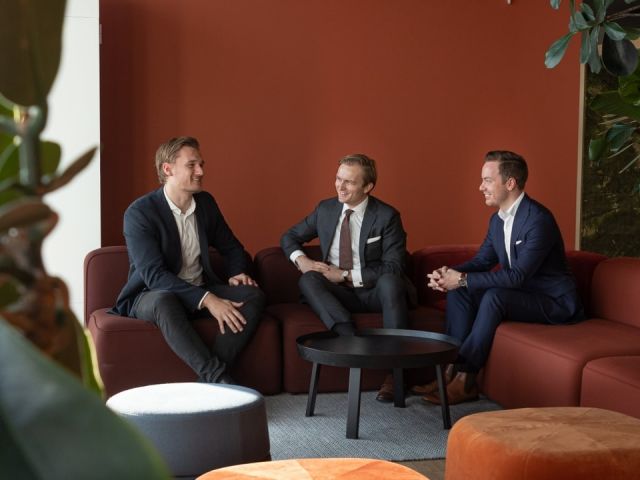
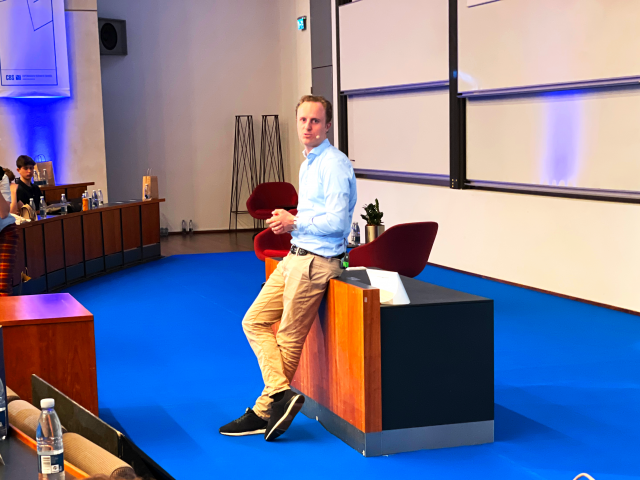
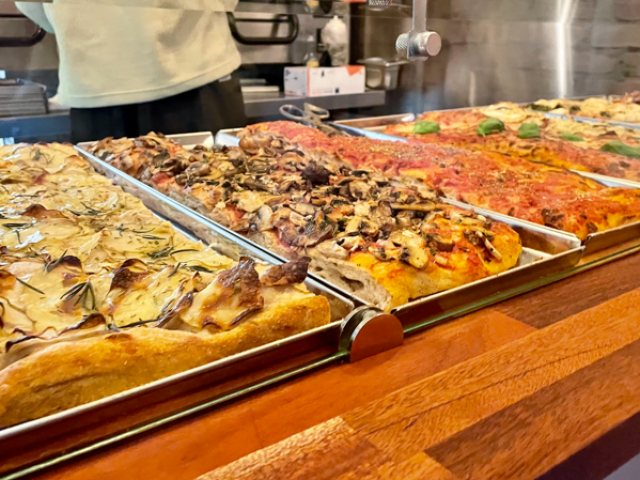
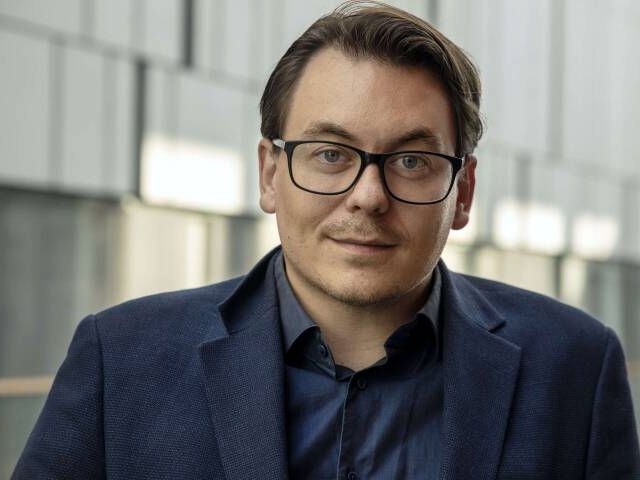





























































































































Comments